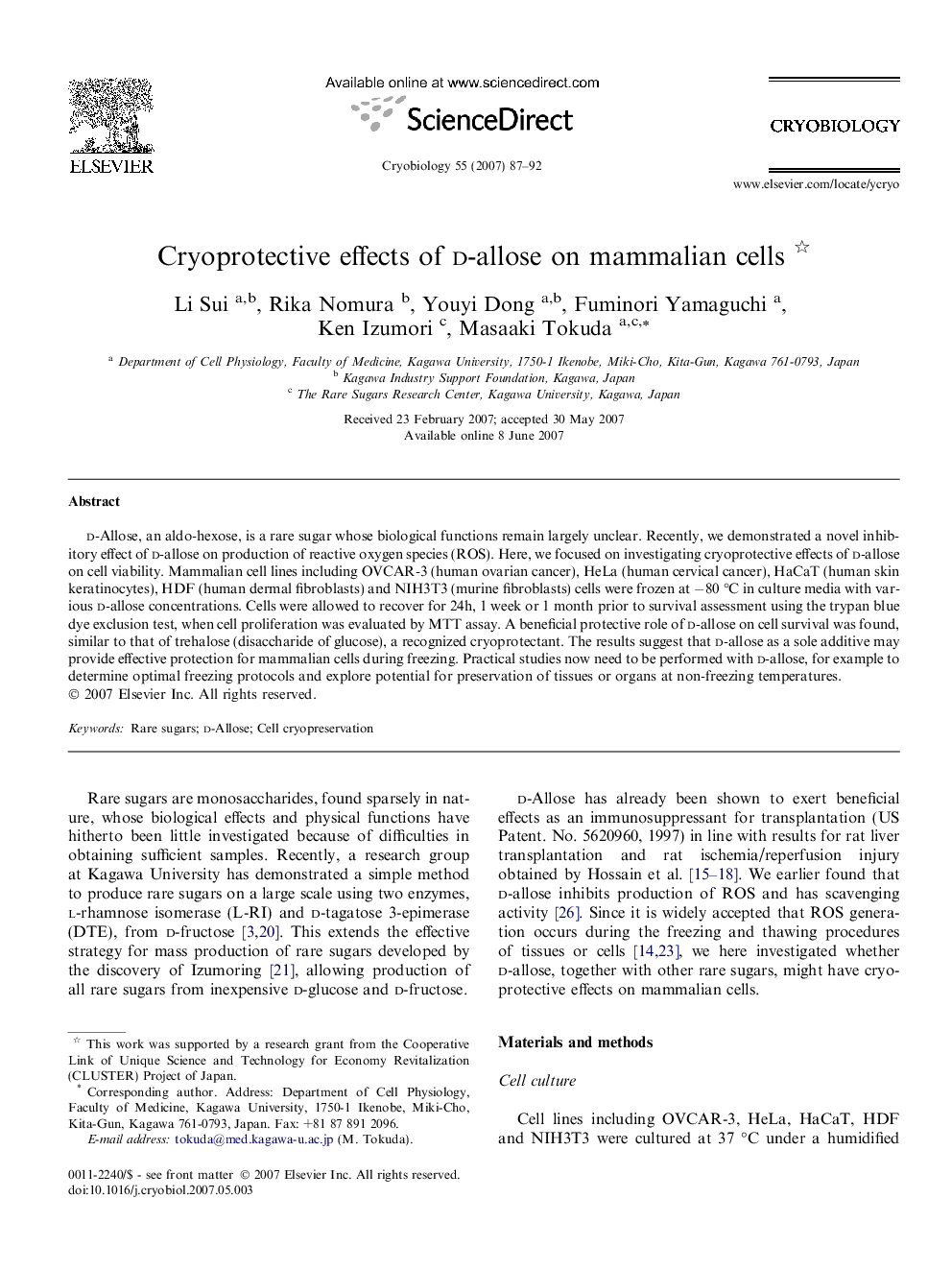| Article ID | Journal | Published Year | Pages | File Type |
|---|---|---|---|---|
| 2169423 | Cryobiology | 2007 | 6 Pages |
d-Allose, an aldo-hexose, is a rare sugar whose biological functions remain largely unclear. Recently, we demonstrated a novel inhibitory effect of d-allose on production of reactive oxygen species (ROS). Here, we focused on investigating cryoprotective effects of d-allose on cell viability. Mammalian cell lines including OVCAR-3 (human ovarian cancer), HeLa (human cervical cancer), HaCaT (human skin keratinocytes), HDF (human dermal fibroblasts) and NIH3T3 (murine fibroblasts) cells were frozen at −80 °C in culture media with various d-allose concentrations. Cells were allowed to recover for 24h, 1 week or 1 month prior to survival assessment using the trypan blue dye exclusion test, when cell proliferation was evaluated by MTT assay. A beneficial protective role of d-allose on cell survival was found, similar to that of trehalose (disaccharide of glucose), a recognized cryoprotectant. The results suggest that d-allose as a sole additive may provide effective protection for mammalian cells during freezing. Practical studies now need to be performed with d-allose, for example to determine optimal freezing protocols and explore potential for preservation of tissues or organs at non-freezing temperatures.
